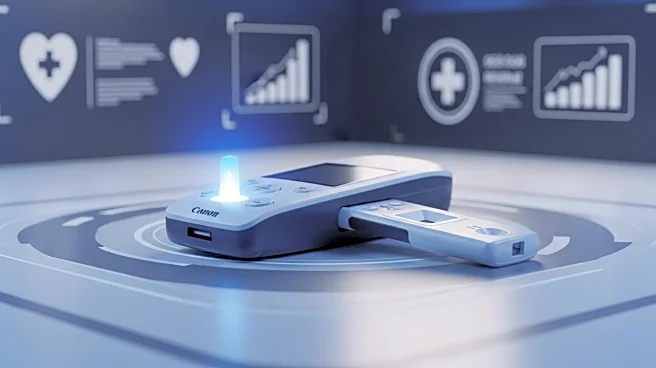What's Happening?
The self-testing market is projected to experience significant growth by 2032, driven by advancements in healthcare technology and increased consumer demand for convenient testing solutions. Key players such as Becton, Dickinson and Company, Abbott, and Siemens Healthcare GmbH are leading the charge in developing innovative self-testing kits and devices. The market is segmented by product type, application type, sample type, test type, and distribution channel, with applications ranging from blood glucose testing to COVID testing. The report highlights the importance of government policies and regulations in shaping market dynamics, as well as the role of emerging technologies in driving demand.
Why It's Important?
The expansion of the self-testing market is crucial for the healthcare industry as it aligns with the growing trend of personalized medicine and patient empowerment. By enabling individuals to conduct tests at home, healthcare providers can reduce the burden on medical facilities and improve access to diagnostic services. This shift could lead to more efficient healthcare delivery and better patient outcomes. Companies involved in this market stand to benefit from increased sales and market share, while consumers gain access to more convenient and timely health information.
What's Next?
As the self-testing market continues to evolve, stakeholders can expect further innovations in testing technology and increased collaboration between healthcare providers and technology companies. Regulatory bodies may introduce new guidelines to ensure the safety and efficacy of self-testing products. Additionally, the market may see a rise in partnerships aimed at expanding distribution channels and enhancing consumer education about self-testing options.
Beyond the Headlines
The growth of the self-testing market raises ethical considerations regarding data privacy and the accuracy of self-administered tests. As consumers take on more responsibility for their health data, companies must ensure robust data protection measures are in place. Furthermore, the reliance on self-testing could impact traditional healthcare models, prompting discussions about the role of healthcare professionals in patient diagnosis and treatment.










